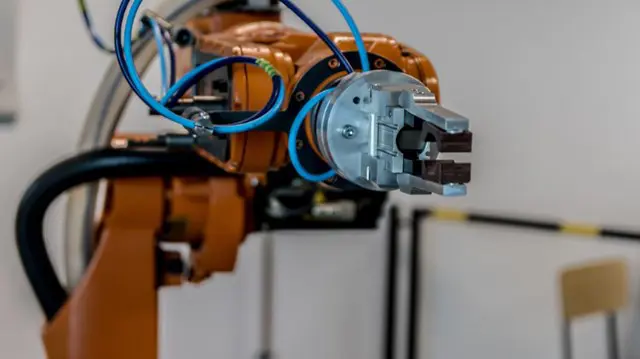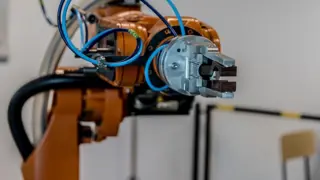
Industry 4.0 - Automation & Applications
Automation, Robotics, NC & CNC and 3D printing
J. Aatish Roa
Summary
- Reed Courses Certificate of Completion - Free
- Tutor is available to students
Add to basket or enquire
Overview
"The next industrial revolution is bringing about untold change in every industry creating massive advantages and challenges to implement."
Industry 4.0 is the digital transformation of manufacturing/production and related industries and value creation processes. Industry 4.0 is used interchangeably with the fourth industrial revolution and represents a new stage in the organization and control of the industrial value chain. The implementation of industry 4.0 is giving birth to smart manufacturing practices and smart factories. Increasing productivity and revenue exponentially. In short we can say - The Fourth Industrial Revolution (or Industry 4.0) is the ongoing automation of traditional manufacturing and industrial practices, using modern smart technology (Like Robotics,CNC,3D printing etc.)
Smart Manufacturing and Smart Factories bring with them optimizations and a growing ability to self-optimize production leading to nearly zero downtime. Optimization will play a major role in keeping high end equipment maintained efficiently by having the right resources in the right place at the right time. Being able to utilize your production capacity constantly and consistently is better than a major down time or changeover. While IIOT (Industrial Internet Of Things) and M2M (Machine to Machine communication) are in the lead, Automation and related applications, Is playing a vital role in shaping the ecosystem of Industry 4.0.
Curriculum
Course media
Description
This course is designed to cover the automation & application portion of Industry 4.0. This is very beneficial for students from mechanical, manufacturing & Industrial engineering stream. Moreover, Those professionals who are already a part of any manufacturing industry, will get the additional knowledge of various development in the field of technology which can revolutionize their existing practices. So this course is not only for aspiring engineers but also for working professionals. Some of the areas of automation & applications in industry 4.0 covered in the course is elaborated below :
Automation - Classification, Control system & challenges
Robotics - Definition, Laws of robotics, Components of a robot, Robot classification, DOF - Degree Of Freedom, Robot configurations and some exceptional robots available in industry.
Numerical Control - NC & CNC machines, Components of CNCs, Types of CNCs, Importance of higher axes machining, Programming format, CODING exercise (G-Code), Applications.
3D Printing - General Explanation, Procedure, Types of 3D printing processes, Materials & applications.
Who is this course for?
- Mechanical engineering graduates & undergraduates
- Manufacturing engineering graduates & undergraduates
- Industrial engineering graduates & undergraduates
- Industrial professionals interested in industry 4.0 domain
- Anyone interested in learning about Automation,Robotics,Numerical control & 3D printing
Requirements
- Be able to understand basic mathematics terminologies
- The most important trait - "A kin and curious mind"
Career path
-
What Job roles you can apply after completing the course
- GET & DET
- CNC Engineer
Questions and answers
Currently there are no Q&As for this course. Be the first to ask a question.
Certificates
Reed Courses Certificate of Completion
Digital certificate - Included
Will be downloadable when all lectures have been completed.
Reviews
Currently there are no reviews for this course. Be the first to leave a review.
Legal information
This course is advertised on reed.co.uk by the Course Provider, whose terms and conditions apply. Purchases are made directly from the Course Provider, and as such, content and materials are supplied by the Course Provider directly. Reed is acting as agent and not reseller in relation to this course. Reed's only responsibility is to facilitate your payment for the course. It is your responsibility to review and agree to the Course Provider's terms and conditions and satisfy yourself as to the suitability of the course you intend to purchase. Reed will not have any responsibility for the content of the course and/or associated materials.


